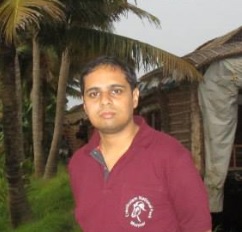 It is summer in South Asia, and it seems to be getting hotter than ever before (though I have been spared this year). Climate change is expected to have major consequences in the region with Bangladesh at the top of the risk index for global climate change by the Intergovernmental Panel on Climate Change (IPCC) for nine consecutive years now. Recently the baseline results of a cohort study to see the health effects of climate change in Bangladesh were published. The future will unfold through the lens of this cohort and hopefully force the global leaders to act before the damage becomes irreversible.
It is summer in South Asia, and it seems to be getting hotter than ever before (though I have been spared this year). Climate change is expected to have major consequences in the region with Bangladesh at the top of the risk index for global climate change by the Intergovernmental Panel on Climate Change (IPCC) for nine consecutive years now. Recently the baseline results of a cohort study to see the health effects of climate change in Bangladesh were published. The future will unfold through the lens of this cohort and hopefully force the global leaders to act before the damage becomes irreversible.
In a previous blog, I talked about arsenic contamination of ground water. Personally, I would love technological solutions for its removal before being supplied for human use but those who are still in awe of the medical model of health, might look forward to the results of this protocol for a randomised controlled trial on use of high-selenium lentil as a dietary intervention for countering the effects of arsenic in Bangladesh.
Nepal it seems was on an epidemiology overdose this month with reports on alcohol consumption practices among married women, anxiety and depression, psychiatric and headache disorders, as well as road traffic injuries.
Of special mention is the grand rounds case report on DiGeorge syndrome from India. It is a wonderful article, true to the grand rounds format and clinicians will enjoy reading it. Another pleasurable read, this time for public health professionals, was on how a maternal morbidity surveillance and research system was set up in Assam, India with minimal complexities and local stakeholder ownership.
A study on fathers of premature newborns admitted in neonatal intensive care units in India found that they are stressed over financial burdens and alteration of parental roles. This was influenced among other things by the father’s occupational and educational status.
No surprises here, but 57.3% of medical colleges have not published a single paper between 2005 and 2014. It makes me wonder how faculty career progression will happen since the Medical Council of India has research output based criterion for promotions.
Do also check out the NEJM Clinical Image from India on reversible loss of vision in malignant hypertension.
Soumyadeep Bhaumik is a medical doctor from India and he works on evidence synthesis and public health. He is currently studying international public health at the Liverpool School of Tropical Medicine. All opinions are personal. Twitter @DrSoumyadeepB.
Competing interests: I have read and understood BMJ policy on declaration of interests and declare that in the past served in editorial positions in several medical journals, including till recently in an Indian journal. I have no other relevant conflicts of interests to declare.
